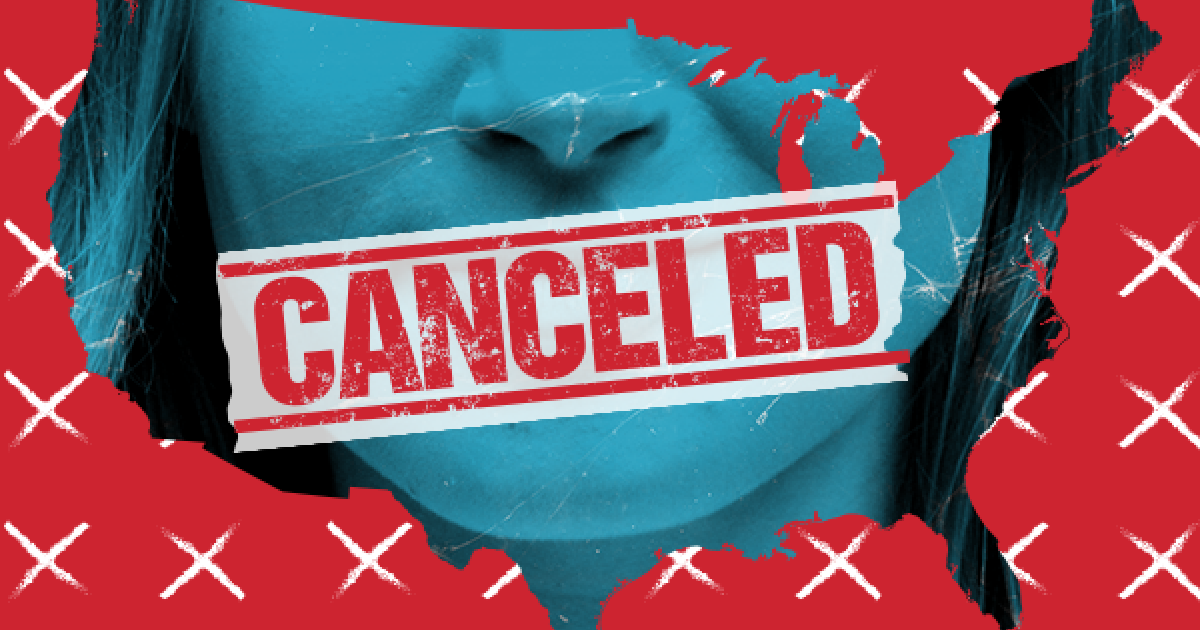
Cancel Culture Is Out; What’s the Next Big Threat to Free Speech?
Josh Shear – In the not-so-distant past, cancel culture dominated headlines, Twitter feeds, and living room debates. It was the digital-age trial by fire: say the wrong thing, and your career, reputation, and influence could vanish overnight. The idea began as an effort to hold powerful people accountable, but somewhere along the way, it mutated. It became less about justice and more about public shaming, outrage mobs, and weaponized groupthink. As audiences grow weary of outrage for outrage’s sake, and as high-profile figures bounce back from so-called cancellations with book deals and podcast empires, a new phenomenon is emerging one that’s quieter, harder to detect, and far more dangerous. The next threat to free speech is not a digital mob. It’s something more systemic, baked into the platforms and institutions we rely on daily.
Welcome to the era of algorithmic suppression. Unlike cancel culture, which was loud, messy, and visible, this new threat hides behind lines of code. Tech companies now use AI and automated moderation tools to control what we see, read, and hear. Under the guise of “safe spaces,” “community standards,” or “misinformation policies,” entire viewpoints are being buried.
What’s insidious is that many users don’t even realize it’s happening. A post doesn’t go viral. A video doesn’t get views. A blog disappears from search results. The result is not a mob dragging someone into the digital square it’s silence. And silence, when enforced by design, is a more effective silencer than public outrage ever could be.
With governments working closely with tech giants to monitor “harmful content,” the lines between protecting the public and suppressing dissent are dangerously blurred. Suddenly, a tweet criticizing government policy can be flagged as misinformation. A video exploring alternative health solutions can be demonetized. A podcast guest expressing controversial opinions is algorithmically down-ranked.
This isn’t about legality it’s about visibility. Free speech technically still exists, but the power to distribute that speech has shifted to private corporations and their opaque moderation protocols. Today, your right to speak exists only if the algorithm allows it.
Perhaps even more alarming is the rise of self-censorship. In an environment where one poorly worded statement can trigger algorithmic punishment—or worse, get you labeled a “problematic creator” many people are choosing to simply stay silent. Writers second-guess their words. Creators scrub their content. Everyday users delete posts before hitting publish.
This isn’t cancel culture. It’s internalized control. It’s a subtle but powerful shift where the fear isn’t social backlash, but platform consequences. The chilling effect becomes so normalized that we stop noticing how it’s shaping our narratives, debates, and sense of reality.
Artificial intelligence isn’t just moderating content it’s starting to write it. News outlets, brands, and even influencers are using AI to generate posts that are “safe,” non-offensive, and algorithm-friendly. The danger here isn’t just bland content it’s conformity.
As more voices are filtered through the same risk-averse AI models, the internet becomes a place of homogeneity. Provocative ideas, fringe thoughts, and challenging debates are smoothed over in favor of polished, palatable noise. The very essence of what makes discourse rich its unpredictability is being drained out by digital predictability.
Traditional media isn’t off the hook either. In an effort to remain relevant in a click-driven world, they now curate content that confirms biases rather than challenges minds. Rather than fostering free and open discussion, media organizations have become narrative factories, promoting only what aligns with their ideological lens.
This isn’t about fake news it’s about narrowed perspectives. The result? Readers are trapped in echo chambers that feel informative but are deeply curated. It’s not censorship through deletion it’s censorship through omission.
When freedom of expression becomes conditional, it ceases to be truly free. If the only acceptable speech is that which conforms to algorithmic, political, or cultural standards, then dissent becomes a relic of the past. Innovation dies. Art suffers. Democracy, which relies on open discourse and uncomfortable truths, begins to rot from the inside out.
We’re not facing a mob with pitchforks anymore. We’re facing silent gatekeepers AI filters, hidden policies, and engineered norms that shape our reality before we even get the chance to speak.
This isn’t a call for anarchy or unmoderated chaos. Of course, hate speech, threats, and harmful misinformation need responsible oversight. But we must distinguish between harmful content and unpopular opinions. We need transparency in moderation systems, accountability from tech giants, and the courage to engage with ideas that make us uncomfortable.
The future of free speech doesn’t lie in shouting over each other it lies in reclaiming the spaces where conversation can happen without fear of erasure. It lies in platforms that empower dialogue, not silence it.
As cancel culture fades into the background, we find ourselves at a crossroads. Do we accept a sanitized, pre-approved version of reality? Or do we fight for a messier, more chaotic, but ultimately more truthful world where ideas, no matter how unpopular, are allowed to breathe?
The next threat to free speech isn’t obvious. It’s quiet. It’s efficient. And it’s already here.
This website uses cookies.